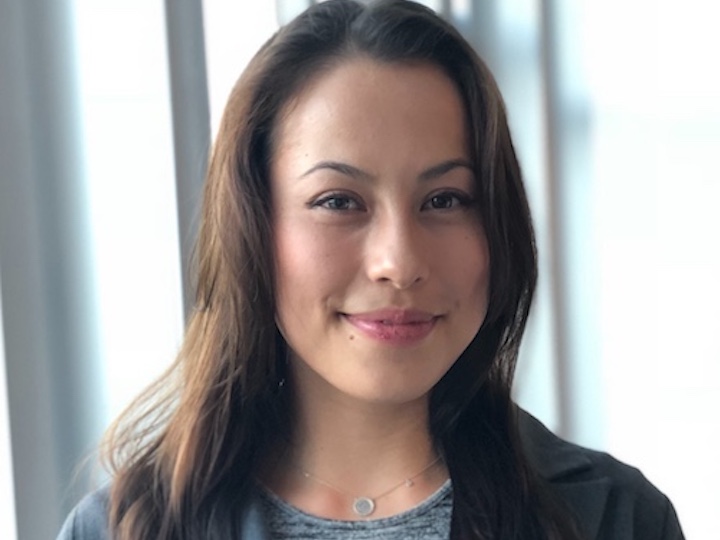Student Spotlight: Hana Burkly

Hana Burkly (NHS'19, G'20), a GHI student fellow, is pursuing a joint B.S./M.S. degree in global health.
Tell us about your experience working with a faculty mentor and conducting research as a Global Health Initiative Student fellow. What inspired the focus of your research?
Over the course of the fall semester I am working with Vincent Turbat, associate professor in the Department of International Health, to ascertain how sub-Saharan African countries can capture a demographic dividend by decreasing their economic dependency ratios and increasing female employment rates.
As a sophomore, I took Professor Turbat’s class, Economics of Health and Development, where I became interested in the public health implications of a country’s demographic composition. During a particularly impactful assignment, students were asked to analyze demographic trends across different countries and measure those countries’ various health and economic outcomes.
A trend that emerged was that countries with increased life expectancies, followed by a rapid decrease in fertility rates (over 50% decrease in a 20 year period), experienced a period of sharp economic growth and a significant expansion of working-age adults. Consequently, governments with the economic systems in place to handle such an influx of working-aged adults were able to harness this potential to reap a demographic dividend and reinvest in their own countries.
I became curious as to how other countries could work to mirror these results, and also boost their economic systems. This curiosity is what drew me to Professor Turbat’s research.
Tell us about some of the global health events you have participated in on campus/in D.C.
Earlier this month I attended a symposium called “The Nature Health Connection: Biophilic Practices for a Healthy, Livable DC” to learn more about what Washington, D.C., has been doing to integrate green building practices into its urban planning. I am writing my thesis on urban design and mental health in D.C., and this symposium was an excellent starting point in understanding D.C.’s urban landscape through the lens of green spaces.
The Global Health Initiative hosts weekly talks with experts in the field of global health, and I have been fortunate to be able to attend many of these. A talk that I particularly enjoyed was a GHI “brown bag” discussion co-led by Bernhard Liese and Myriam Vuckovic of the School of Nursing and Health Sciences (NHS). They presented on the benefits of experiential learning, prompting a discussion on the hands-off nature of the NHS’s global health semester abroad research program, where students design and implement a research project in conjunction with a not-for-profit organization or research institute overseas. This talk was particularly relevant to me as a global health major, and deepened my appreciation for the experiential learning aspect of my major.
What activities are you involved with on campus?
This semester, I am focusing on writing my thesis on urban design and mental health in D.C. It is part of a larger project led by former Georgetown faculty member Layla McKay, who is conducting analyses of mental health-friendly urban design in various cities around the world. I will use the GAPS framework (green spaces, active spaces, pro-social spaces, safe spaces) as a lens with which to consider the city’s mental health burden of disease and urban design trends in order to analyze the connection between urban design and mental health outcomes in D.C.
I am also the president of Georgetown’s club boxing team. I have been competitively boxing for Georgetown since freshman year, and have won two national titles in the 125 lb beginner and novice divisions. I am less involved in competitions this year than in previous years since I am focusing on my thesis, but I still play an active role in training new competitors and organizing team events. It is my hope that the women’s team will take home the United States Intercollegiate Boxing Association national title this spring.
What is your favorite part about being at Georgetown?
My favorite part about being at Georgetown is the people that I meet, both on and off campus. Georgetown regularly holds events where people from all walks of life come to speak about an incredible range of topics. One of my favorite events was called “Golf Art Saved Me, Georgetown Set Me Free,” a discussion with Valentino Dixon, an innocent man who was wrongfully convicted of murder and sentenced to life in prison. He was exonerated after 27 years in prison with the help of three Georgetown undergraduate students and a professor who had heard about Mr. Dixon’s case through an article in Golf Digest featuring his surrealistic drawings of golf courses that he made while in prison.
In addition to the many events on campus, I am grateful to the connections I have made through the NHS’s global health program, which helped me land an internship with the Research Triangle Institute (RTI) International. At RTI, I am conducting research on soil-transmitted helminths and schistosomiasis. Specifically, I am analyzing the gap between prevalence of soil-transmitted helminths and schistosomiasis, and provision of treatment services per country in which either of the two diseases are endemic.
RTI’s office is a few blocks away from the White House, which provides me many unique opportunities to participate in civic engagement and thought-provoking discourse on my walk home from work. As someone who grew up overseas, I am constantly amazed by the proximity to critical decision-making that living in the nation’s capital affords.
Tell us about your educational and professional aspirations.
Once I get my master’s degree from Georgetown, I would like to work full-time as a researcher for a global health not-for-profit organization such as RTI International. I believe that the experience doing research will guide my decision-making in terms of whether I want to continue on to earn my Ph.D., and if so, what I choose to study. I hope that by being a lifelong learner, I can turn knowledge into practice and work to improve quality of life for all people.
